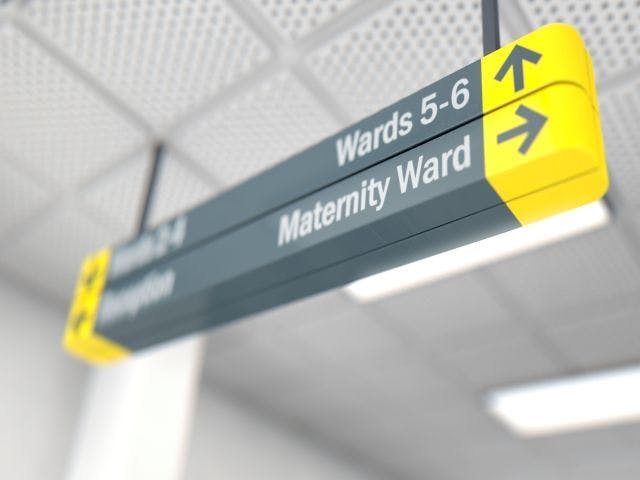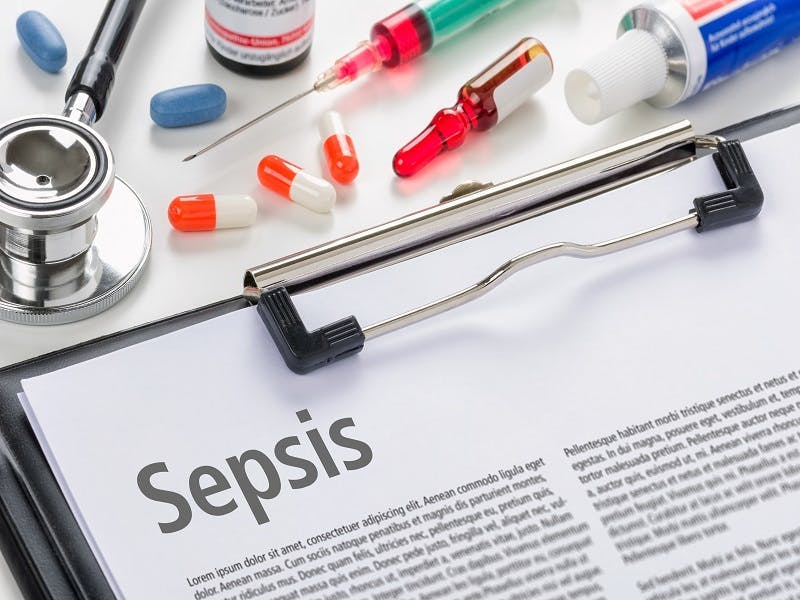X v Leeds Teaching Hospitals NHS Trust 2022
By Eleanor Fieldsend
Sepsis, also known as blood poisoning, is the immune system’s overreaction to an infection or injury. Both severe sepsis, and the resultant septic shock, are medical emergencies that can lead to multi organ failure and death.

Since early 2018, Sarah Walker and her team have represented Mr X in a clinical negligence claim against Leeds Teaching Hospitals NHS Trust following the traumatic, avoidable death of his beloved wife Mrs X. Mrs X, who was just 47 years old, died as a result of a missed diagnosis of leaving behind her husband and their six-year-old daughter.
About the case
One Sunday evening,in late 2017 Mrs X began to feel unwell with a high temperature, cough and cold symptoms, dizziness and pain in both her stomach and lower back. She attended her GP out of hours’ service just over 24 hours later and explained that her symptoms had worsened since the previous evening.
On examination Mrs X was found to have high blood pressure, a raised heart rate and a temperature of 39.2 degrees Celsius. The GP diagnosed a viral infection and referred Mrs X to hospital for further assessment, including blood tests and monitoring.
Less than an hour later, Mrs X arrived at St James’ University Hospital Emergency Department and was informed there was a 7 hour wait to see a doctor. This was confirmed in the Trusts’ own internal Serious Incident Investigation Report. Having waited for over an hour to be seen, and feeling increasingly disorientated and unwell, Mrs X asked for her husband to take her home where she would be more comfortable. At no point during her attendance at the Emergency Department was she triaged.
An emergency appointment was made for Mrs X to see her GP for later that same day. Mrs X advised that she still had a fever, urinary frequency, a dry cough but no shortness of breath. The GP completed the UK Trust GP screening assessment and noted Mrs X could be suffering from sepsis, but instead concluded she was suffering from a flu like illness. On this basis, Mrs X was assessed to not require hospital admission and was told to return the following day if her fever failed to resolve, if she developed new symptoms or her existing symptoms worsened.
The next day Mrs X felt very slightly better but by the evening her condition deteriorated, her temperature rose further, her back pain increased and she was disorientated. The GP made a home emergency visit the following morning and noted that Mrs X was having difficulty walking, had a temperature of 40.1 degrees Celsius, back pain, photophobia, a dry cough and mild shortness of breath. She was therefore referred to St James’ Acute Medical Assessment Area, arriving at 11:30am. Blood tests were taken, with all the results being available on the hospital system by 3:17pm. These tests revealed Mrs X had a markedly elevated C reactive protein, raised Procalcitonin and deranged liver function.
Despite the fact that Mrs X’s temperature still remained over 38 degrees and her heart rate was over 90bpm, the screening tool was not utilized. The diagnosis being considered at this point was solely a viral, flu-type illness.
At 3:30pm, Mrs X was assessed by a consultant. Mrs X told the consultant she had never felt so ill. The consultant advised Mrs X she was to be discharged home, despite the fact he had not yet reviewed her available blood test results. The consultant advised Mrs X she would need to “ride it out” and it was a viral illness.
Mrs X was not formally discharged from the hospital until approximately 5.30p.m. At this point the consultant had still failed to review her blood test results, despite them being available for over 2 hours.
The blood test results were finally brought to the attention of the consultant later that day. However, he was of the opinion that they did not affect his original assessment of Mrs X and so no further action was taken.
The following day the microbiology department contacted St James’ Acute Medical Assessment Area to advise that Mrs X’s blood cultures had grown a gram-positive coccus resembling Streptococcus and she required urgent admission for antibiotic treatment.
Following this St James’ University Hospital contacted Mrs X by telephone and asked her to return to the hospital. No triage or assessment was made of Mrs X’s condition during this telephone call nor was there any suggestion that an ambulance might be sent to bring her in. By this time Mrs X was so critically unwell it took her husband over an hour to be able to get her into the car and to hospital as her mobility was so impaired.
On examination at hospital Mrs X was in peri-arrest, peripherally cold, had a temperature of 37.2 degrees Celsius and was hypoxic. Intravenous antibiotics and steroids were commenced at midday. Mrs X’s blood tests revealed she had evidence of acute kidney injury and she was in septic shock. The decision was made to transfer her to the Intensive Care Unit, but no beds were available at that time.
Mrs X was admitted to the Intensive Care Unit in the late afternoon, but sadly her conditioned continued to deteriorate and she was intubated and ventilated.
Following a review at approximately 1am the next morning it was noted that the second dose of antibiotics had not been administered within the recommended 6-hour timeframe. The second dose was administered at 1:30am, meaning there had been a delay of nearly 7 hours in giving the second dose.
By 9:30am, it was noted Mrs X was in established multi-organ failure and despite ongoing resuscitation with antibiotics, inotropes and kidney filtration, Mrs X tragically died.
The Claim
Mrs X’s husband contacted Switalskis in 2018, keen to seek answers to what had happened during Mrs X’s care to lead to such a tragic and catastrophic outcome.
Expert medical evidence was obtained from experts in General Practice, Accident & Emergency Care, Acute Medicine and Microbiology. Whilst no failings were found in the care provided by the GPs, the experts in all the other medical disciplines were overwhelmingly supportive of the case for negligence . Multiple breaches of duty were highlighted in both the A&E and Acute Medicine care and it was established that, had Mrs X received a reasonable standard of care, an earlier diagnosis of would have been made and successfully treated with broad spectrum Antibiotics. In other words, Mrs X’s death was entirely avoidable.
Leeds Teaching Hospitals NHS Trust repeatedly denied that there were failures and breaches of duty in the care provided to Mrs X which caused her death. Despite their position the Trust agreed to attend a joint meeting to discuss the case further. However, at this meeting the Trust simply confirmed their view that liability was completely denied and there had been no breaches in the duty of care owed to Mrs X. Unsurprisingly settlement of the claim was not achieved and, due to the Defendant’s behaviour, it was necessary to issue the claim at Court.
Over the next 9 months the case continued through the litigation process. Eventually, despite the Defendant’s persistent complete denial of liability, in July 2022 the claim was successfully settled out of court. The figure awarded reflects the significant lack of care provided to Mrs X, the severity of the negligence she was subjected to and tragically, the loss of a loving wife and mother.
It has been a privilege to represent Mrs X, her husband and their daughter, who have been both brave and fearless in holding the Defendant Trust accountable for its catastrophic failures in the face of the Trust’s persistent and adamant arguments that no negligence had occurred.
Sarah Walker and her team thank Mr X and his family for allowing us to share the facts of this case publicly in the hope of raising awareness of the dangers of sepsis.
If you have been affected by circumstances similar to this case, please get in touch with our team so that we can begin to support you.




